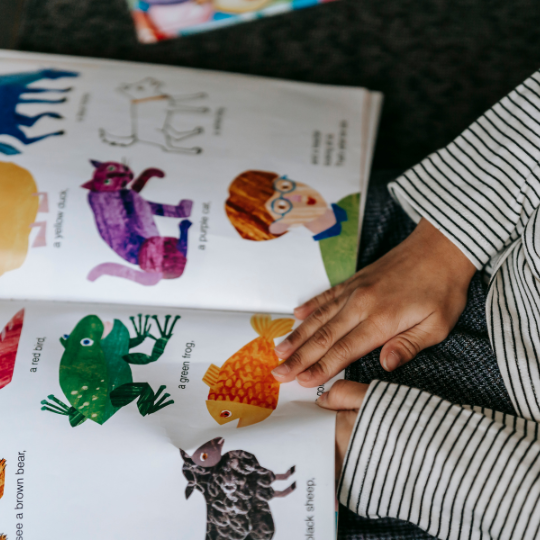
Are you trying to play catch up, or are you living in the moment?
As ensembles have begun to return to the rehearsal room and stage the overwhelming thing I’ve heard from people is:
“It’s too much. We’ve gone from 0 to 100kmh in a few weeks.”
From lockdown to 70+ musicians in a room.
From empty calendars to overwhelm.
From anxiety over having too little to do, to suddenly having too much to do.
In 2020 I learned that before COVID I had been doing too much. Spreading the peanut butter too thin. I was doing lots of work, but none of it was my best.
Of course, I didn’t know that at the time. I’d been operating on the ubiquitous ‘busy is good’ treadmill.
Say yes to every gig. Don’t miss an opportunity. The famous Fear Of Missing Out.
I now know the underlying cause of this ‘lifestyle’ was self-doubt. A fear of being less-than. Of not being enough. That somehow if I collected as many achievements as possible I’d appear better. Be better. Feel better. Soothe my self. Bolster my ego.
Most of us have lived on this merry go round for quite some time.
For me it started at school, when ‘good choices’ (read: compliance) was rewarded - with positions of authority, badges, prizes, embroidery on a blazer pocket. I got conditioned to expect that if I just followed the rules I would be rewarded accordingly.
More damagingly, it taught me to believe I could control outcomes that were, in reality, completely beyond my control.
In the real world, results are unpredictable. Even the best systems are messy. Everyone’s different - and so are their choices, behaviours and attitudes.
Yet it took me more than 15 years to really wake up to this reality. It took COVID.
When all my work (and all that shiny validation) dried up last year I was gutted. Suddenly all I was left with was myself and my issues.
Every moment of the last 12 months has presented me with a choice: Numb out. Ignore the pain, suffering and challenge. Netflix. Food. Online shopping.
Or, to look inwards, acknowledge, deal with and work through my feelings. Do the uncomfortable work of growing.
Slowly, I’ve learned to choose the latter more often. Because ignoring the feelings doesn’t dissolve them. They simply build up until there’s no choice but to release them.
Experiencing them is no walk in the park either. But it does allow us to move through and past them.
As we’re gratefully returning to our music-making I’m doing my best not to slingshot back into my old ways.
One of the gifts of COVID is an understanding of our humanity, and ourselves. How much we need each other. How much we need to take care of ourselves. What each of us needs and wants.
This year I’m choosing to draw different boundaries around my time and commitments.
A wider boundary around taking responsibility for myself, my actions and my attitudes. A narrower one around trying to control others, or allowing others’ attitudes and actions to control me.
On the podium, that means doing my best but acknowledging there’s plenty (almost everything!) I can’t control. I turn up prepared and deliver my very best - just like before. What’s changed is how I feel afterwards. If things don’t go well I don’t take it as a personal failure, but rather an opportunity to learn and course-correct.
I’m learning to be more realistic about what I can provide for the ensemble, and what is excessive work that I do purely to alleviate anxiety. The worry I used to feel before each rehearsal has greatly reduced post-COVID. I’m grateful for the time we get to spend together and know that we’ll do the best we can with what we’ve got.
When school returned this year I was adamant about meeting my ensemble where they were at. I had no idea what skills and knowledge would have been lost after a year off. Or how long it would take to revisit and consolidate their learning.
What I did know was that I wanted them to experience the success of playing well together and making recognisable sounds as soon as possible.
I banked on giving them repertoire that was an entire year lower than what they would normally play.
My group is a once-per-week concert band of 7-10th graders that usually plays Grade 2.5-3 music over the course of a year.
At our first rehearsal back our folders were full of Grade 1.5 and 2 music.
The result? Happy, excited students.
Though the first rehearsal sounded quite…funky. Yet by the second rehearsal we were gelling together, playing in time and in tune with great sounds returning.
Contrast this with students I’ve spoken to in other schools and institutions whose conductors are intent on “catching up”. Putting unnecessarily hard music in front of ensembles that haven’t played together in a year.
“We have to play in the same category we always do at festival this year”
“This orchestra plays Grade 3, so we’re going to play Grade 3”
These statements are not about students. They are about conductors’ egos. The ego boost of appearing in a particular competition or festival grade, or playing a particular piece. About needing to appear good.
They ignore the reality of this moment. Everyone has lost a large chunk of ‘normal’ time and learning out of their lives. The thing you’re trying to catch up isn’t real. It’s just a construct. It may be a habit you were in for years before. But it’s still a construct.
The irony is that ensembles won’t sound good we conductors aren’t responding to their actual needs and current abilities. Why put musicians under unnecessary stress at a time that’s already overwhelming for everyone?
What our ensembles need now that we are returning to in-person rehearsals is exactly what they needed during the height of the pandemic:
Social connection.
Agency.
Success.
Learning.
Joy.
None of these require us to play music that is needlessly hard.
None of these require us to choose the mind-numbing experience of thrashing through music that is beyond the ensemble's ability.
They require respect and compassion for the people in the ensemble. They require an acknowledgement that we have all experienced something hard and traumatic. And they require flexibility and deep listening on our part to respond to our musicians' actual needs, not our devised expectations.
There is no race. We’re not competing against anyone but our tired, overwhelmed selves.
We can beat ourselves up about how we’re not where we planned. Or we can accept where we are and have a great time going from here to there.
If you'd like to interrogate further how our egos can interfere with our ability to lead, check out "Brené on Armored vs Daring Leadership Part I" on the Dare to Lead Podcast, which partly inspired this post.

A true story about why we do what we do, and the power of music and process to transform ourselves, our ensembles and our audiences.

If Peter & the Wolf and Young Person's Guide are feeling a bit stale, spice up your children's programming with these delightful modern works for young audiences by living composers.